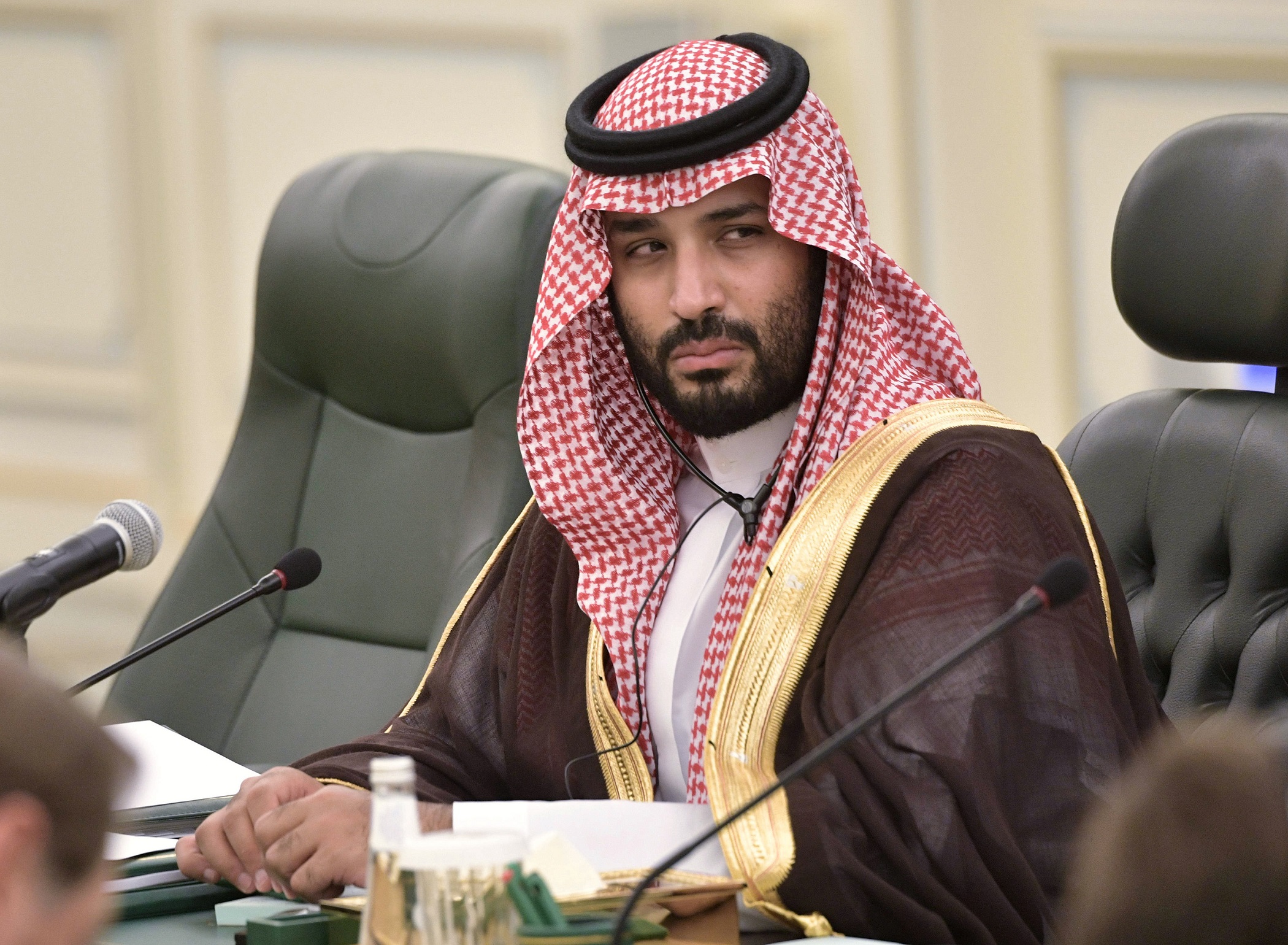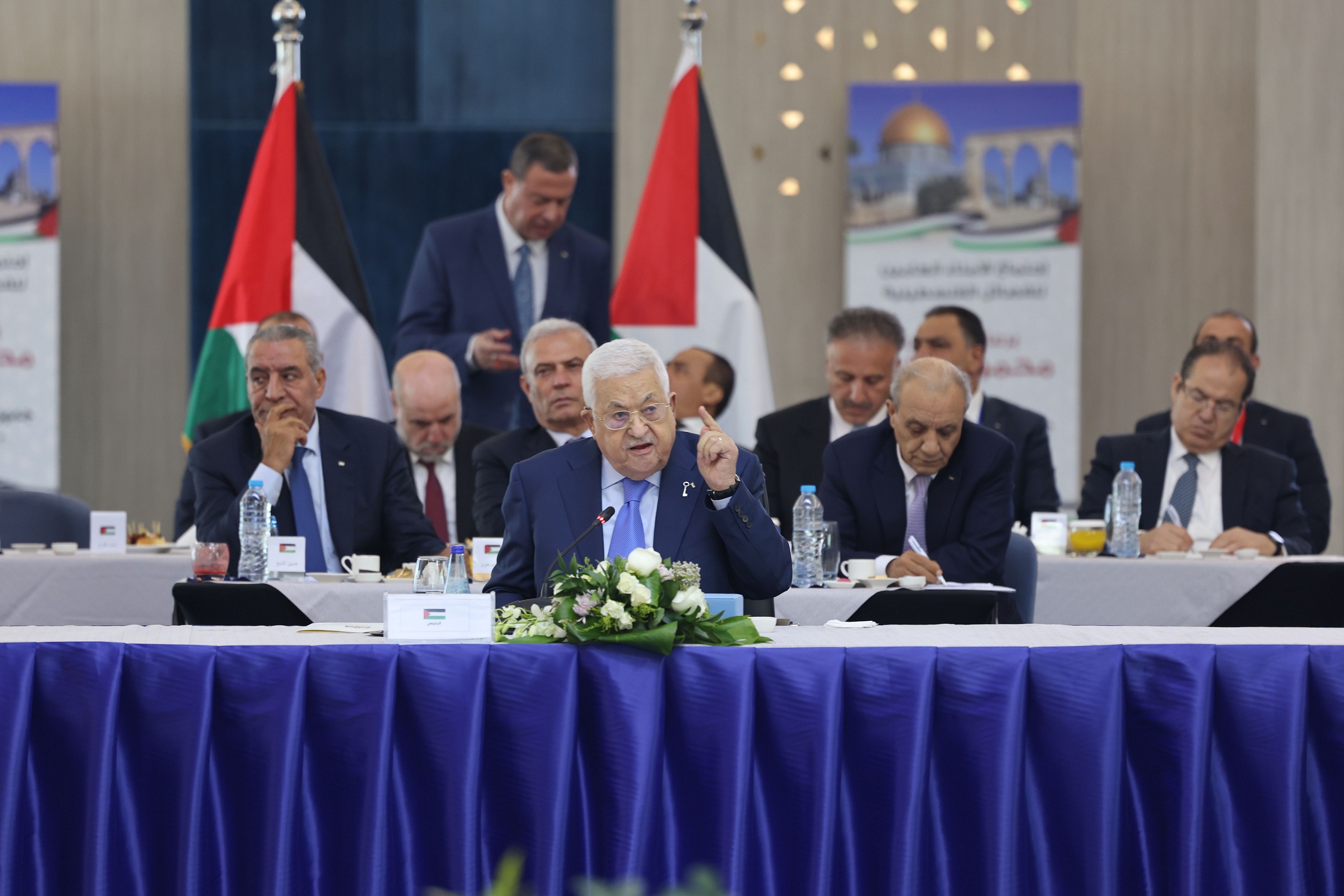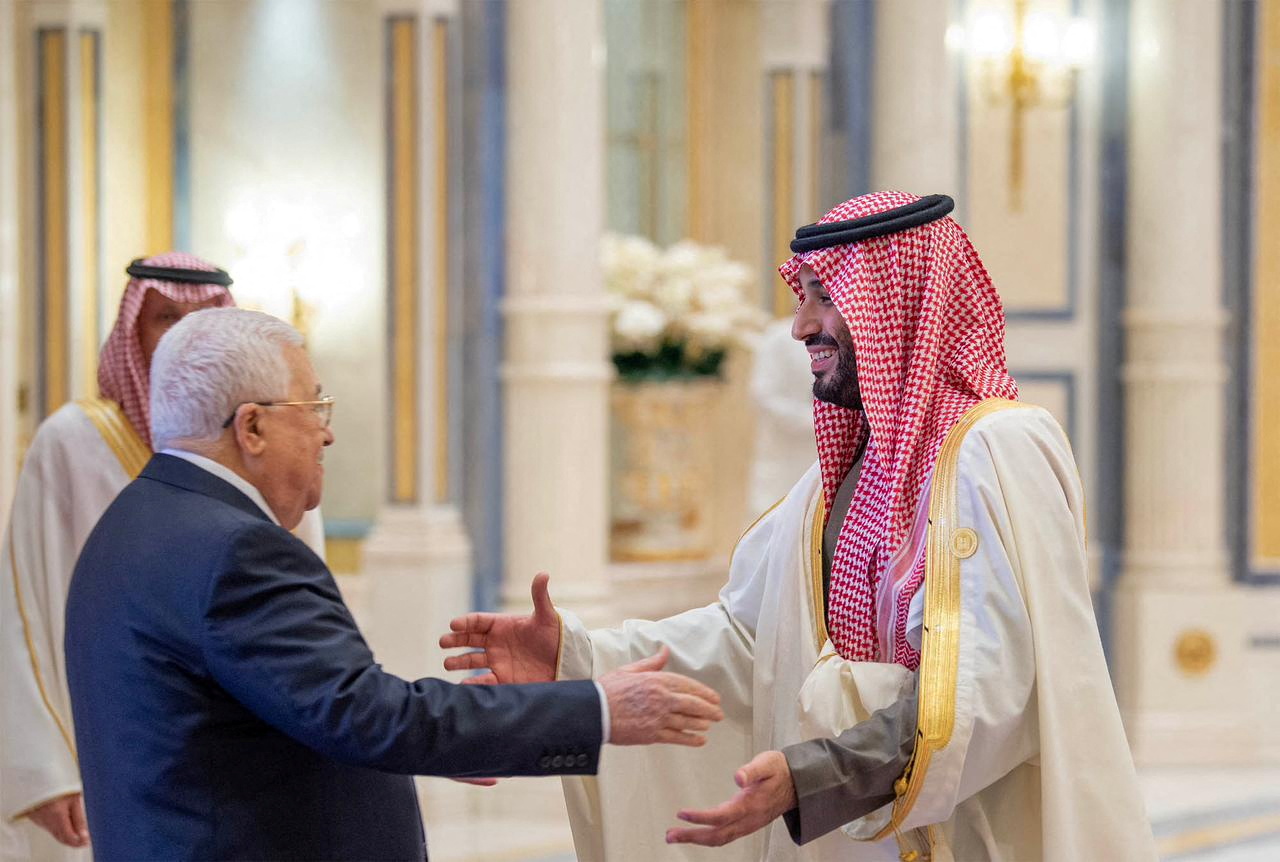Publications
INSS Insight No. 1755, August 23, 2023
The Palestinian issue is expected to command a more central role in the talks between Saudi Arabia and Israel on normalization, compared to earlier assessments or expectations by the Israeli government. Three main reasons account for this: the importance of the issue for Saudi Arabia as the leader of the Arab-Muslim world; the demands that the Biden administration is expected to present to Israel to preserve the two-state option; and the understanding by Palestinian Authority President Mahmoud Abbas that he will gain more than he loses if he joins the move, contrary to his policy regarding the Abraham Accords. However, it is difficult to expect the current Israeli government to realize the opportunity presented by normalization with Saudi Arabia in order to save itself from a political impasse. The Netanyahu government will be hard pressed to stop the moves toward annexation that are creating a reality of one state, and instead enjoy significant benefits from the Saudis and other Arab states for promoting moves toward separation from the Palestinians, leading to two distinct entities.
The United States administration is working to implement a regional initiative that includes Israeli-Saudi normalization, or “integration,” as the Saudis call it. So far, Israeli media attention has focused on Saudi demands from the United States in return for its consent to normalization with Israel, including a US-Saudi defense pact, permission to operate a full nuclear fuel cycle on its territory, and the sale of advanced US weapons to Saudi Arabia. Yet apparently there is an additional component of the emerging initiative, the “Palestinian package,” whose principal element is a breach of the political impasse in the Israeli-Palestinian conflict and revival of the two-state solution.
Until now the contents of the “Palestinian package” and its weight within the broader initiative were not clear. Prime Minister Netanyahu himself, referring to normalization with Saudi Arabia, played down the importance of the Palestinian issue for the Saudis, as have other senior Israeli officials. However, it appears that unlike with the Abraham Accords, the issue will assume center stage in the formulation of relations between Israel and Saudi Arabia, given Saudi and American expectations of Israel on this matter and their commitment to the two-state solution.
The Saudi Position
For many years Saudi Arabia has shown fairly limited interest in the Israeli-Palestinian conflict, along with a palpable aversion to engagement with the issue and to the conduct of the Palestinian leadership – both the Palestinian Authority and Hamas in the Gaza Strip. However, Riyadh is more committed to the Palestinian issue than Abu Dhabi, if only because of its status and role as the leader of the Arab and (Sunni) Muslim world, the “Guardian of the Holy Places,” and its would-be leadership of regional processes. The Royal House and King Salman himself (who is believed to be more faithful to the Palestinian idea than his son the Crown Prince) are committed to hear the voices of those who object to normalization in the Abraham Accords format (about 80 percent of Saudis), the religious establishment (notwithstanding the erosion of its powers), and feelings in the Arab street.

Thus, Saudi Arabia presents progress toward a political solution to the conflict as a condition for normalization, and is formally committed to its implementation according to the parameters of the Arab Peace Initiative, which is based on the Saudi initiative. Senior officials in the Kingdom have said that they see the initiative as the basis for negotiations rather than a diktat. It is therefore estimated that in return, Riyadh expects some Israeli gestures toward the Palestinians that it can highlight as genuine progress toward achieving the two-state solution, if only in stages. In a speech at an Arab League summit in Riyadh in May 2023, the Crown Prince stressed that “the Palestinian issue is at the top of the Kingdom’s agenda,” and mentioned the Arab Peace Initiative and other relevant international resolutions on the matter.
True, senior Saudi officials speak in two voices. The differences in nuance between the Crown Prince and his father, the King, or Saudi Foreign Minister Faisal bin-Farhan, or between their statements at different times and to different audiences, reflect the lack of agreement among the Kingdom’s elite, and perhaps also the desire to maintain some opacity and room for political maneuvering. This would enable the Kingdom to take measured steps toward integration with Israel under cover of the demand for a Palestinian state, while adapting and maintaining flexibility so that the Palestinian issue will not become an obstacle to an arrangement with Israel and acquisition of rewards from the United States.
Since the current Israeli government was formed, and against a background of a security escalation in the Palestinian arena and expansion of settlements and outposts, there has been a significant rise in the extent and severity of Saudi condemnation of Israeli government policy and rhetoric, with special emphasis on the visits by Minister Ben Gvir to the Temple Mount. This development is evidence of the Kingdom’s wish to strengthen its involvement in the matter, while signaling to the Israeli government that its freedom of action in the Palestinian arena is limited. The recent appointment of a non-resident Saudi ambassador to the Palestinian Authority who will also act as consul for East Jerusalem, along with the renewal of funding to hospitals in East Jerusalem, are further indications to Israel, and to Jordan and the Palestinian Authority, that Saudi Arabia intends to increase its involvement in the Palestinian issue and possibly also in the al-Aqsa compound. Moreover, Riyadh has tried, while keeping a low profile, to promote reconciliation/unity between the Palestinian Authority and the PLO and Hamas.
The Palestinian Position
It appears that the Palestinian leadership – the Palestinian Authority and the PLO – have learned the lessons of their rigid opposition to the Abraham Accords, and are now ready to take an active part in the moves to promote Saudi-Israeli normalization. The PA achieved nothing by its refusal to participate in regional initiatives based on the Abraham Accords. Another reason why the Palestinian leadership is not ruling out normalization is the senior status of Saudi Arabia in the regional and Muslim world: normalization between Saudi Arabia and Israel without a significant Palestinian component would weaken the Palestinian position still further and push the Palestinian issue to the sidelines of regional arrangements. In the eyes of the Palestinian leadership, being part of the discussions on Israeli-Saudi normalization is also a way of restraining the actions of Israeli government that are perceived to aim at destroying the two-state option. Furthermore, participation in a broad regional process would likewise demonstrate the relevance of the Palestinian Authority, which is losing its own legitimacy and that of its political approach, compared to the growing legitimacy among the Palestinians of the resistance concept heralded by PA rivals, mainly Hamas. Reflecting the changing approach, Mahmoud Abbas met with the Palestinian factions in Egypt in late July in a failed attempt to promote reconciliation and unity; in early August he met with King Abdullah of Jordan, and this was followed by a three-way summit with King Abdullah joined by President el-Sisi of Egypt.

The willingness of the Palestinian Authority to play on the normalization court is evidence of its attempts to realize the opportunity to redesign the Palestinian position, and even its willingness to frame the process in a transitional/interim agreement with Israel, as the way to a future settlement based on the two-state solution. Participation in the normalization process, if it gathers momentum, will enable the PA to influence the process, improve its status at home and abroad, and strengthen its ability to achieve rewards and commitments from both Israel and Saudi Arabia.
Significance for Israel
Normalization with Saudi Arabia would improve Israel’s strategic regional and international standing considerably, with the potential for multi-dimensional gains. However, in order to advance normalization, the Israeli government will be required to commit to the two-state solution to the Israeli-Palestinian conflict and the principles of the Arab Peace Initiative, pledge not to undertake unilateral annexation, and commit to help preserve a functioning Palestinian Authority. If this is the sum total of the demands made on Israel, it will reinforce the worldview of the Israeli right wing, whereby there is no need to implement a settlement in the Israeli-Palestinian arena in order to establish formal relations with most of the Arab world, and that Israel can in effect (and not necessarily formally) continue the steps toward annexation of the West Bank, with little to stop it.
However, it appears that rhetoric alone will not satisfy the Saudi Royal House or the Biden administration. Consequently, to achieve normalization, Israel will have to address the “Palestinian package,” which includes concrete steps, such as freezing the expansion of settlements and evacuating illegal outposts and pastures in the West Bank; avoiding or at least limiting the presence of IDF troops in Area A, which is under PA control; strengthening the Palestinian Authority and extending its area of operation; maintaining the status quo on the Temple Mount, with the emphasis on banning Jews from praying at the site. The PA leadership for its part will be required to renew its control over the northern West Bank and withdraw its claims against Israel in the international courts in The Hague (ICC and ICJ). The Biden administration will be required to fulfill its previous commitments to the Palestinians – reopening PLO offices in Washington and restoring the US consulate for Palestinian affairs in East Jerusalem. It appears that the Saudi share of the “package” will be considerable economic aid, to rescue the PA from bankruptcy and promote projects to improve the economy, power and water supply, employment, and the fabric of Palestinian life.
It will be hard for the Israeli government, certainly in its current constellation, to respond favorably to the elements of the “Palestinian package.” It is even possible that the demands of Israel will be raised to include the transfer of parts of Area C under Israeli control to the control and responsibility of the Palestinian Authority. This would serve as proof of a change in the government’s direction – from “creeping annexation” to conditions for a future settlement based on the two-state idea.
The normalization agreement taking shape should be seen as an opportunity to save Israel (which is unable to save itself) from the steep slope down which it is sliding toward a one-state reality (a situation that is opposed by a majority of the Israeli public). This means promoting a transitional arrangement with the PA, centered around a more than symbolic transfer of land, i.e., 15-30 percent of Area C, to PA control, while freezing construction in settlements outside the blocs and east of the security fence, as well as removing the illegal outposts. To ensure Israel’s character as a secure Jewish and democratic state, the aim is to stop the descent into one state by means of moves toward political, geographic, and demographic separation from the Palestinians. An arrangement that includes transfer of land to Palestinian control will increase what Israel can obtain from Saudi Arabia and open the door to its integration in the region, but this will only be possible subject to a change in the composition of the government in Israel.



